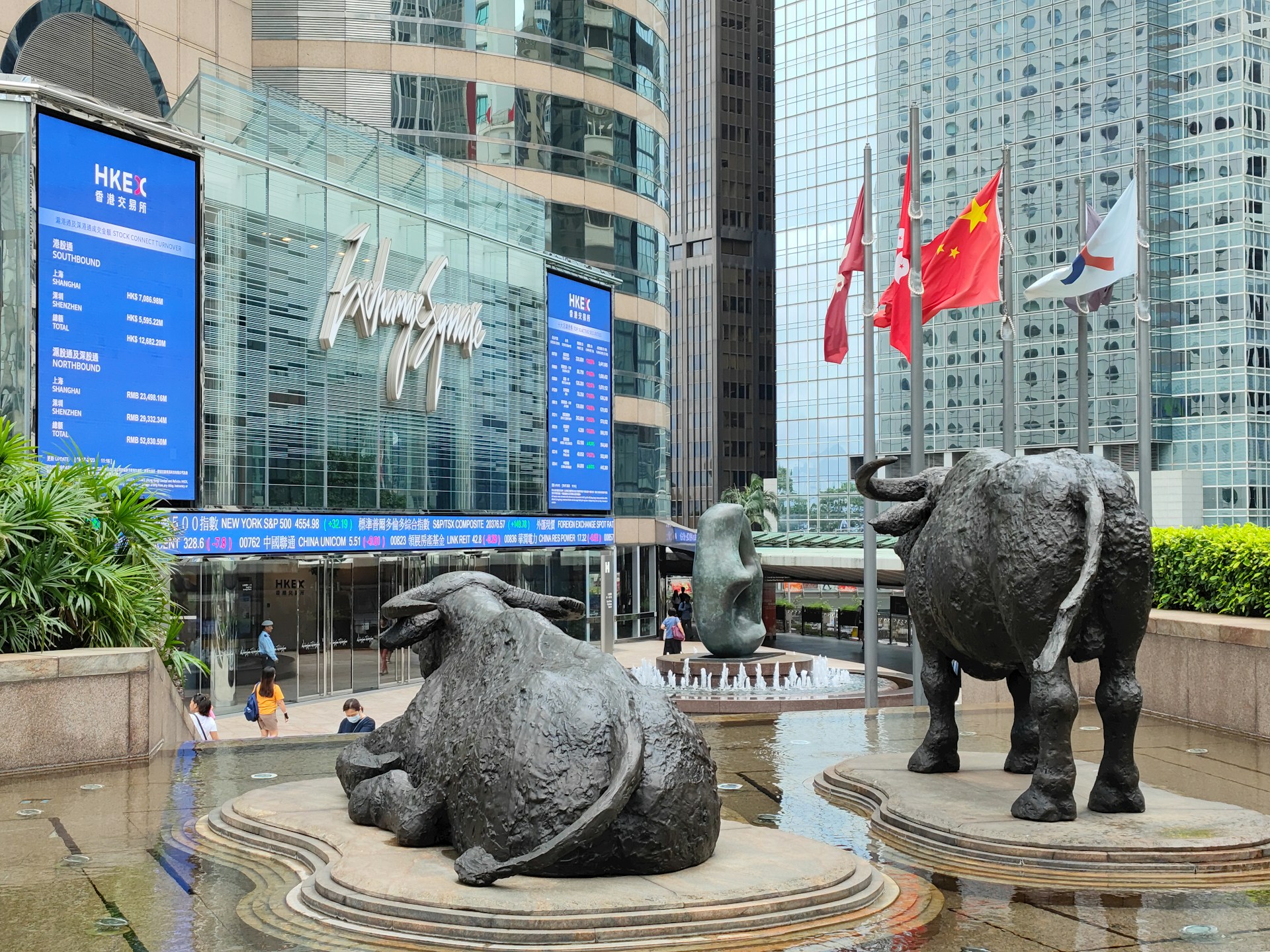Hong Kong’s equity markets opened the week with a modest tailwind, buoyed by renewed optimism over trade detente. The Hang Seng Index rose 0.5 percent to 25,509.20 by late morning Monday, underpinned by expectations of a continued US-China tariff pause and confirmation of a formal trade agreement between the United States and the European Union. These developments are being interpreted by markets not as growth catalysts per se, but as macro-stabilizers—tools to avert a deeper deceleration in global trade momentum.
What may read as market relief is better understood as capital repositioning. While short-term optimism dominates headlines, the underlying driver of this rally—especially in Hong Kong—is not earnings re-rating or liquidity support, but strategic recalibration of geopolitical tail risk.
AIA Group and other insurers led Monday’s gains after Morgan Stanley raised its target price for the sector, citing stronger-than-expected growth in new business value. But here too, the signal is less about firm fundamentals and more about capital rotation into yield-aligned defensives in Asia’s more policy-stable markets. In a capital flow context, Monday’s movements suggest a cautious but discernible shift away from trade war volatility pricing.
At a broader level, the US-EU trade agreement adds an additional layer of short-term geopolitical stability, reducing friction across a major transatlantic corridor. This has spillover implications for Asia—not in the form of direct trade stimulus, but in the reduced likelihood of tariff escalation that could depress export-led growth in China and by extension, Hong Kong.
Hong Kong’s market rally is thus less about local drivers and more about macro hedging. Capital is cautiously repositioning—not in expectation of upside, but to avoid downside.
The Hong Kong market’s divergence is also notable. While the benchmark Hang Seng Index gained, the Hang Seng Tech Index slipped 0.4 percent—underscoring continued investor hesitancy around Chinese platform governance risk and earnings opacity. This bifurcation in sector sentiment signals that even amid a temporary détente, capital remains discriminating. It is rewarding clear growth yield, not speculative optionality.
More broadly, mainland indices such as the CSI 300 and Shanghai Composite climbed a mild 0.2 percent—reinforcing the interpretation that Monday’s lift was relief-driven, not revaluation-led. Domestic institutional investors in China remain sensitive to mixed macro signals from Beijing, where the policy path continues to oscillate between liquidity injection and deleveraging rhetoric.
If anything, this moment reinforces a structural truth in Asian capital flows: when geopolitical risk compresses, capital doesn’t return indiscriminately. It rotates selectively—toward sectors, jurisdictions, and assets where policy predictability and institutional resilience anchor long-term allocation logic.
From a policy coordination perspective, the interplay between US-EU agreement and US-China de-escalation raises an additional layer of strategic interpretation. It signals that Washington is recalibrating its multilateral pressure tactics—reducing friction with Brussels to maintain leverage over Beijing. This triangulation indirectly stabilizes Hong Kong equities, which are often treated as proxies for US-China strategic temperature.
In response, regional sovereign funds and central banks may take this moment to realign reserve asset portfolios—not toward increased equity risk, but toward regionally diversified defensives. Yielding insurers and capital-efficient financials in Hong Kong present one such pocket. The significant gains in AIA, China Life Insurance, and Ping An on Monday reflect not just improved sectoral outlooks, but also their perceived insulation from broader trade-linked earnings volatility.
Yet this realignment is not without constraint. The monetary posture across Asia remains tight, and there is little evidence that central banks—including the HKMA—intend to pivot toward liquidity easing in response to modest equity gains. FX stability remains the dominant objective, especially amid lingering US dollar strength.
From a capital allocation standpoint, the implication is clear: portfolio repositioning is being driven by risk management, not growth conviction. Monday’s rally should not be read as a signal of returning exuberance, but as capital’s vote for the “least exposed” in a still-fragile geopolitical trade landscape.
While the market gains appear technical and sector-led, the broader signal is institutional: global allocators are not chasing returns—they are staging quiet reentries where geopolitical friction has abated and earnings visibility remains defensible.
In sum, this episode may mark the beginning of a tactical reweighting toward Hong Kong equities, but it does not yet reflect a structural return of conviction capital. The tariff pause and transatlantic trade alignment provide temporary calm—but not yet policy coherence.
Capital is rotating toward predictability, not growth. Trade détente stabilizes sentiment—but risk-on allocation remains highly conditional. The next inflection will not come from deals, but from policy posture clarity. Sovereign allocators are watching, but not chasing.














